8 Items You Should Never Store in Your Shed, According to Experts
From safety issues to pest infestations, they can wreak havoc on your property.
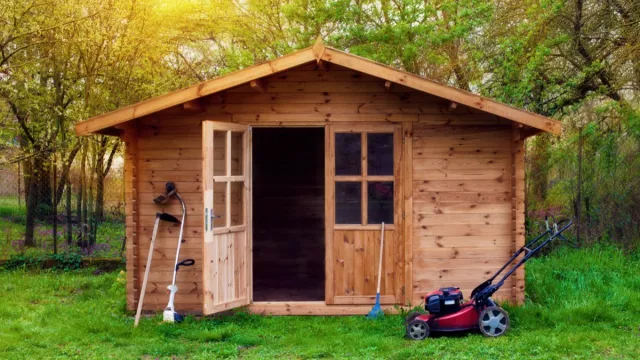
Having an outdoor shed on your property is a great way to maximize storage—but that doesn't mean you can throw just anything in there. Sheds are an ideal place to keep things like tools, gardening equipment, bikes, and more, but there are plenty of ways that people misuse these extra storage facilities—sometimes to dangerous results. In fact, home experts say there are several items that you should never store in your shed, due to a high likelihood of damage, safety issues, and pest problems. Read on for their full list of no-nos.
RELATED: 5 Items You Should Never Store in Your Pantry, According to Experts.
1
Lumber
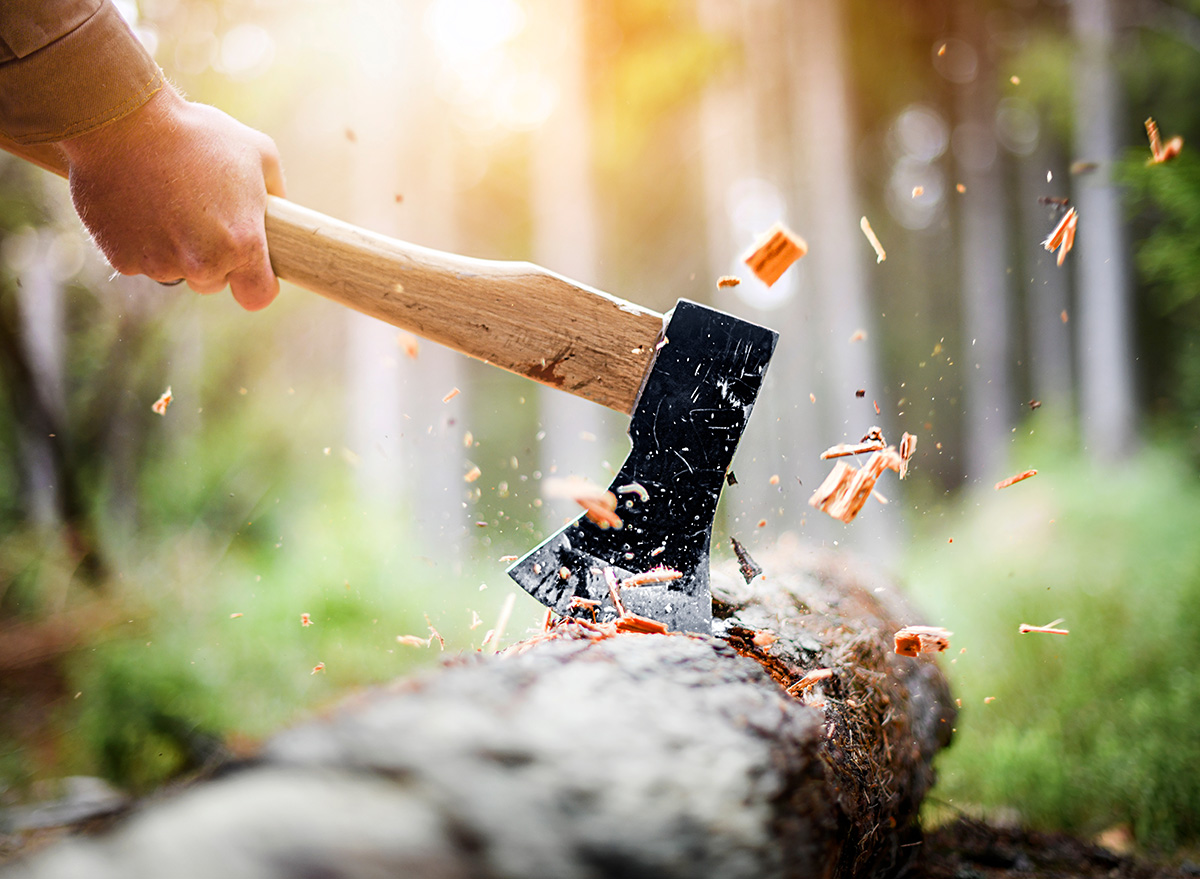
Storing lumber in your shed—as many people do—is a recipe for disaster, says Kyle Selbach, director of operations for All "U" Need Pest Control. He warns that even if your shed is a great distance from your home, piling large amounts of wood is an open invitation for termites.
"What homeowners need to understand is that when termites forage away from their colony, they can travel distances longer than a football field looking for wood to eat! With some colonies of termites reaching colony numbers well into the millions, their damage can quickly become devastating," he says.
2
Paint and deck stain
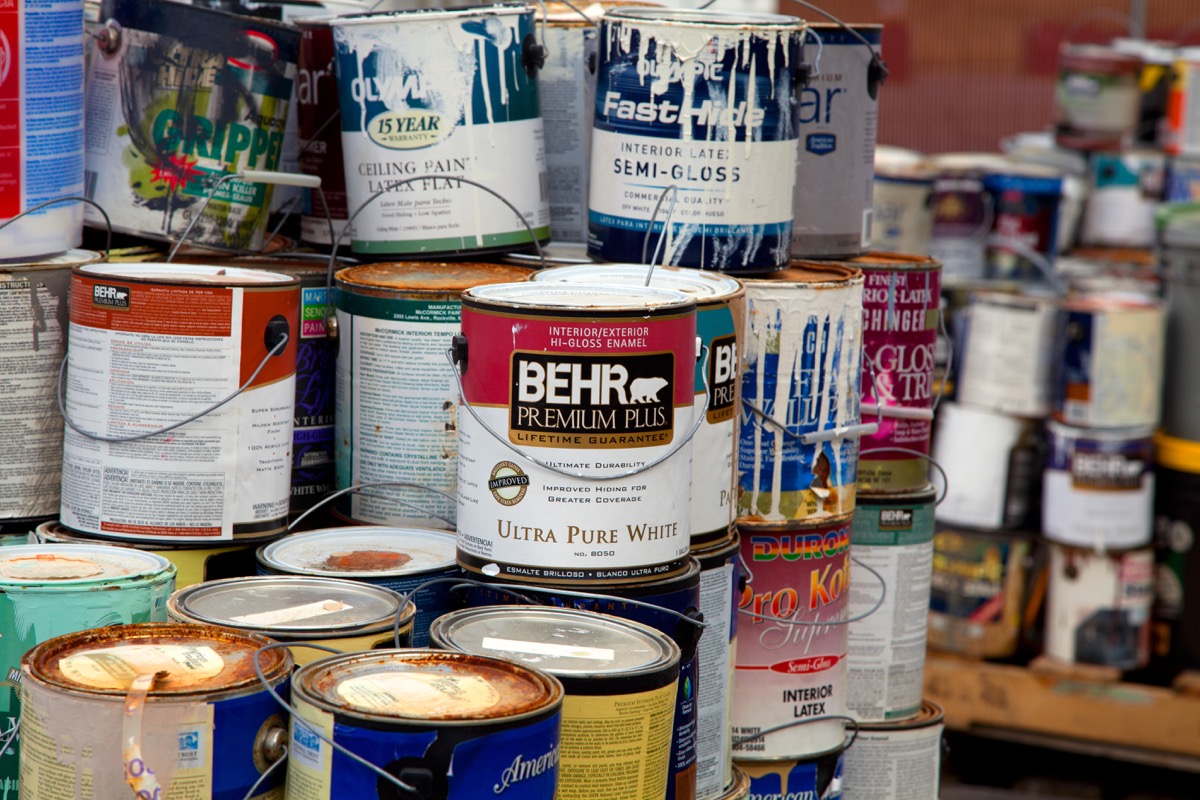
Scott Paul, a home improvement expert with DeckStainHelp.com, says you should avoid storing paints and deck stains in your shed.
"If you leave your deck stain in a garage or shed where temps can fall below freezing, there is a very good chance your stain will be ruined," he says. "Signs that your deck stain has gone bad are excessive thickening, jelling/clumping of the deck stain, or skinning on the top portion."
When storing deck stain, be sure to fully seal the lid to avoid evaporation and keep it in a temperature-controlled room away from any heat sources such as furnaces or water heaters, he recommends.
"Oil-based deck stain is especially flammable and leaving oily rags lying in the sun can cause a fire. Deck stain should be stored appropriately and disposed of according to law as soon as it is no longer usable. Check with your local government for details on how to get rid of deck stain," Paul advises.
RELATED: Property Brothers Warn Against 4 Popular Home Trends "You Need to Stop."
3
Pesticides and herbicides
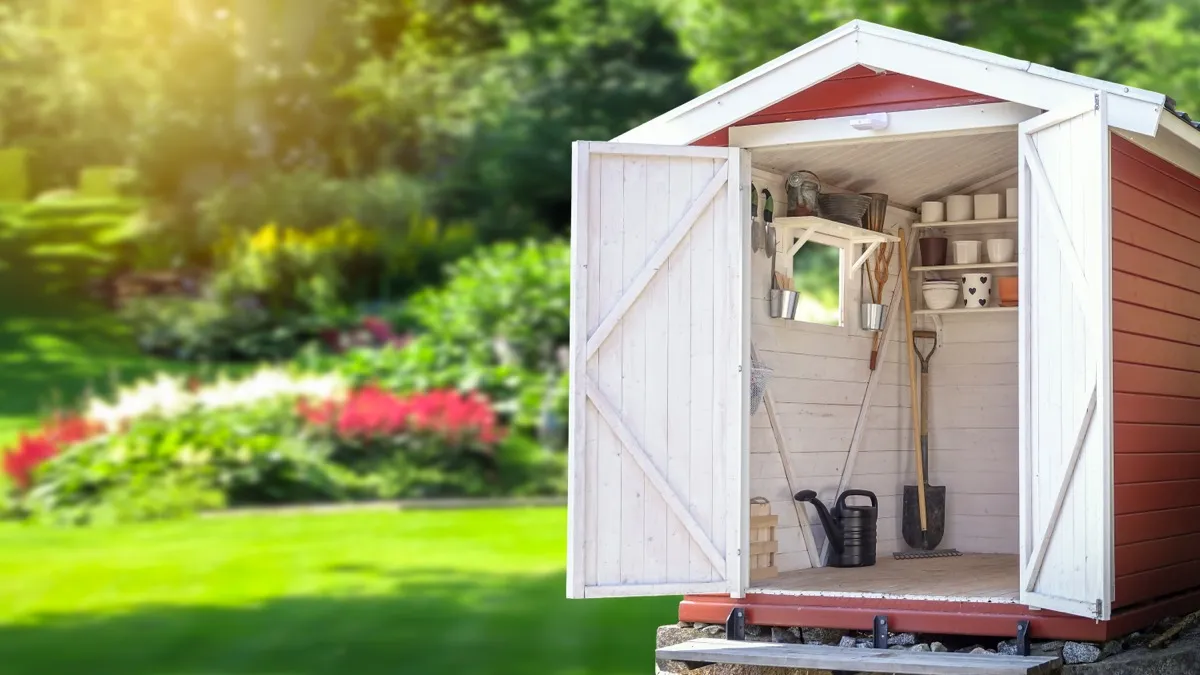
Because these items contain toxic chemicals, they should always be stored with great care, says Deborah Lamberton, general manager for ASAP Restoration.
"Pesticides and herbicides should only be kept in the shed if there is a lock on the door to prevent children or pets from accidentally accessing them and potentially poisoning themselves," she cautions.
4
Cardboard
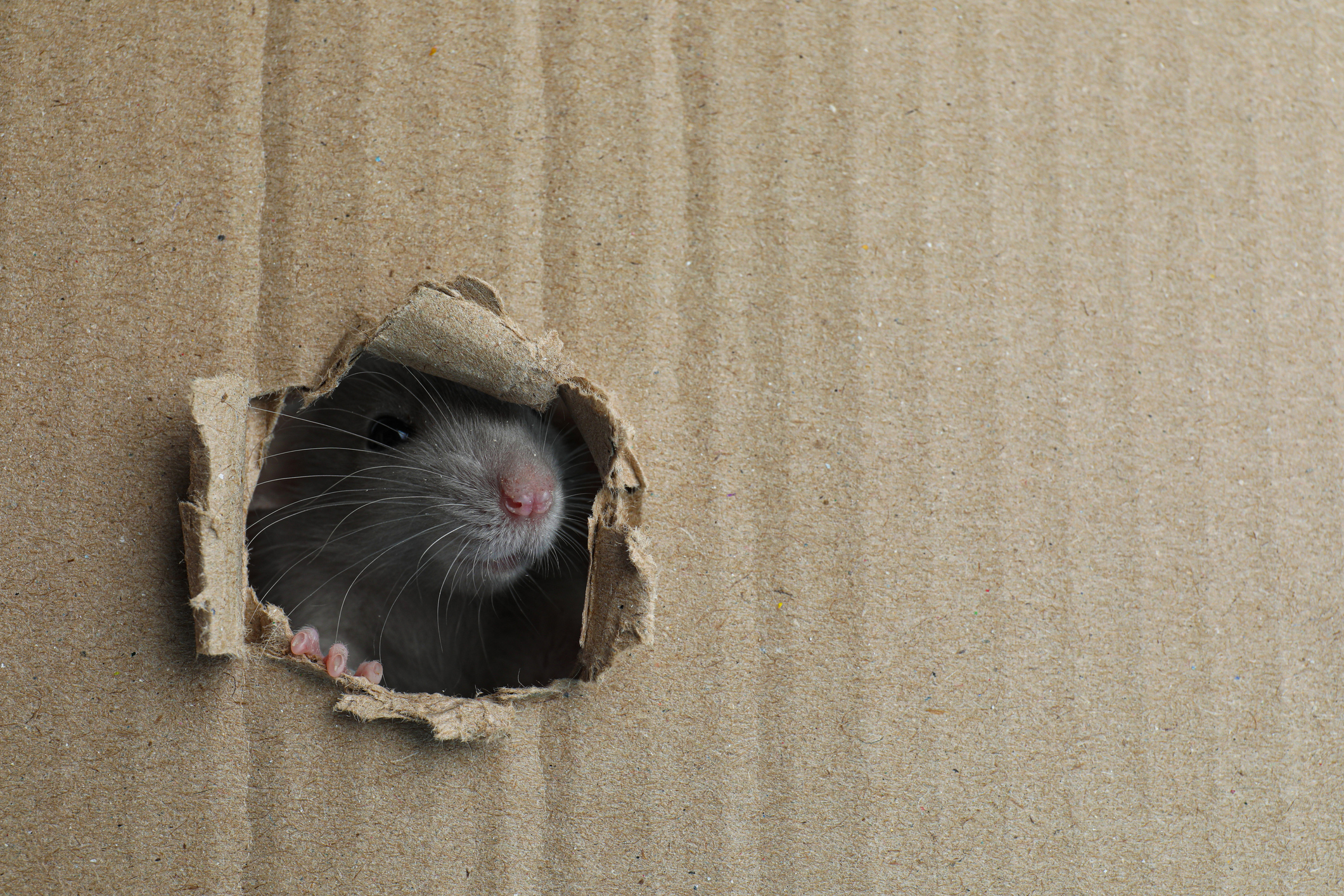
Selbach says that storing cardboard in your shed is also a mistake. "Humidity and moisture can vary greatly and turn the cardboard into a moist haven for all sorts of bugs such as ants, spiders, and other unwanted pests," he explains.
In his line of work, Selbach says it's common to see sheds and storage facilities that have become infested with various kinds of pests. "Sheds are especially susceptible to infestations because they are often away from the home, not adequately sealed, and at the mercy of the varying weather elements throughout the year," he tells Best Life.
5
Electronics and batteries
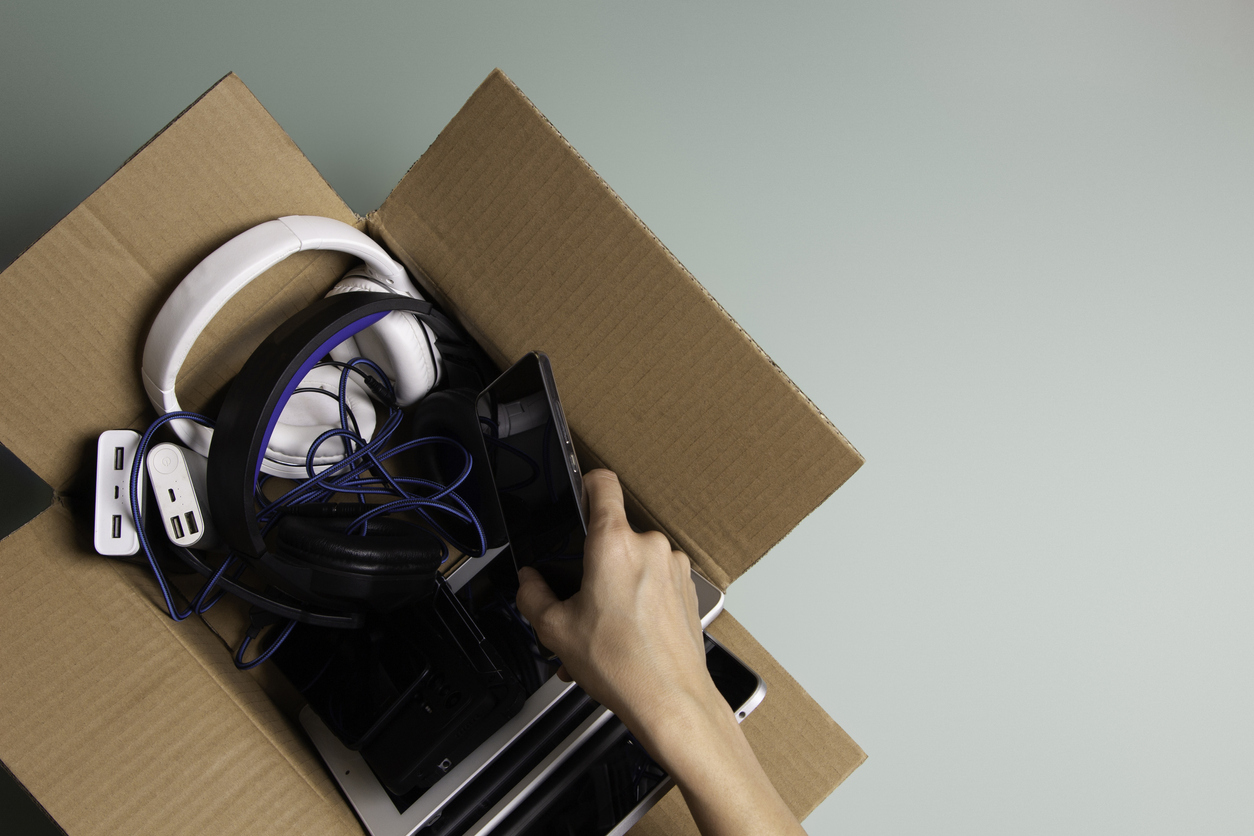
Attempting to store electronic devices or batteries in a shed can damage these products beyond repair. Lamberton says they should always be kept in a cool, dry place protected from the elements.
"Many batteries these days are lithium-ion based and this means that if they are in any way damaged, they can rupture the inner core and explode," she warns. "For batteries that aren't lithium ion in nature, the lead and acid can deteriorate much more quickly in hot or humid conditions and not only destroy the battery itself but potentially also introduce dangerous chemicals into the shed if they leak from corrosion."
RELATED: 6 Ways to Spider-Proof Your Garage, Experts Say.
6
Pet food
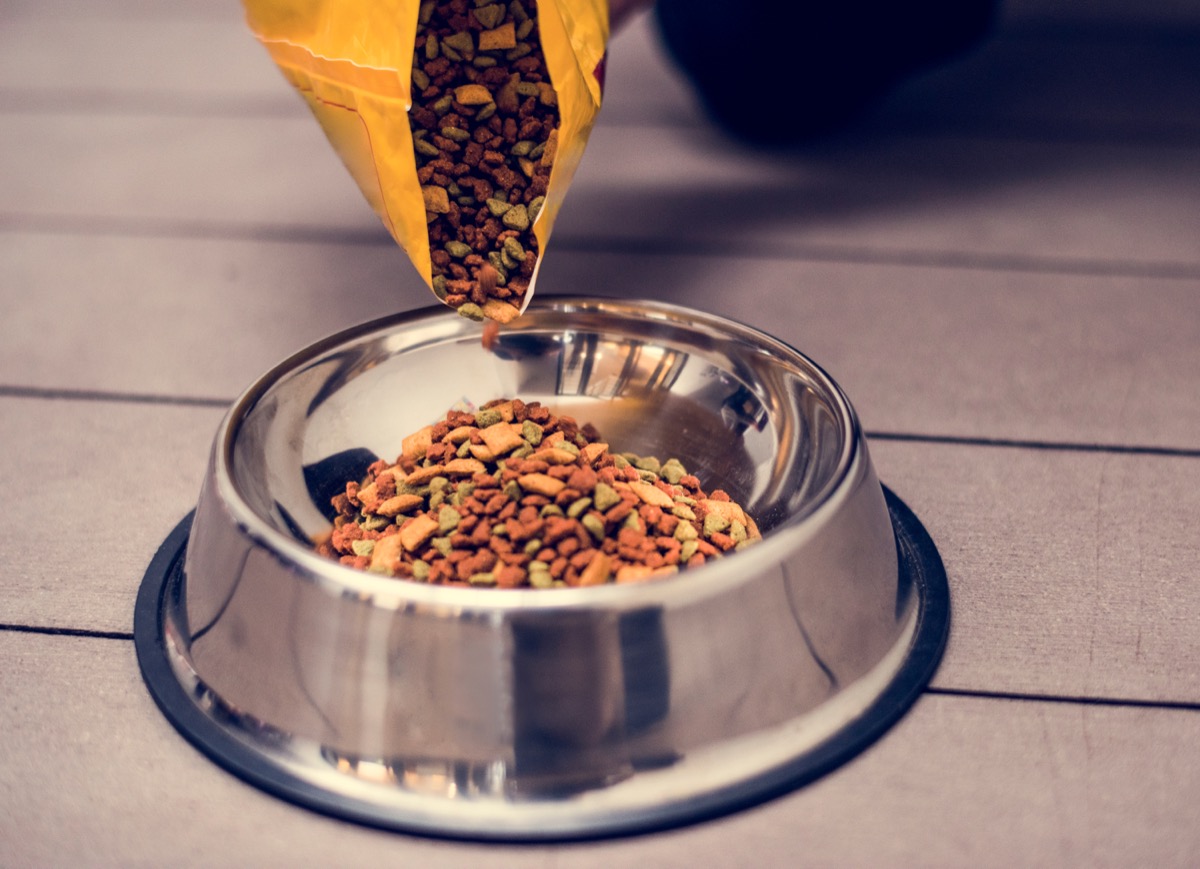
Next, storing non-canned pet food in your shed can also lead to pest problems. Even if it's been put into sealed containers, it can still attract animals, including insects.
"Unopened factory packaging can become compromised easily and allow ants, roaches, silverfish, and other pests into the stored food. This resource will allow them to proliferate quickly and can quickly turn into the source of an infestation," Selbach explains.
7
Fabric
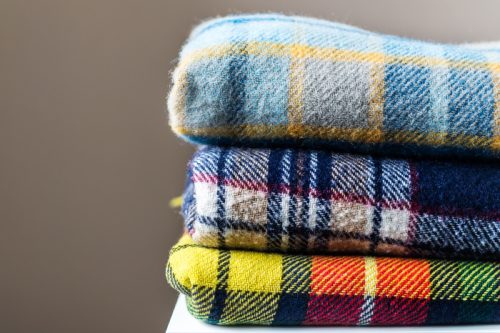
Keeping fabric items such as clothes or blankets in your shed will most likely lead to their deterioration. Mice and other critters may also seek refuge between their folds since this is a comfortable environment for nesting.
Instead, store your fabric items indoors, ideally wrapped in plastic to avoid contact with air and put them in a sealed plastic bin.
Upholstered furniture is also likely to be damaged in a shed, and would be better kept in a more controlled, indoor environment.
8
Documents and paperwork
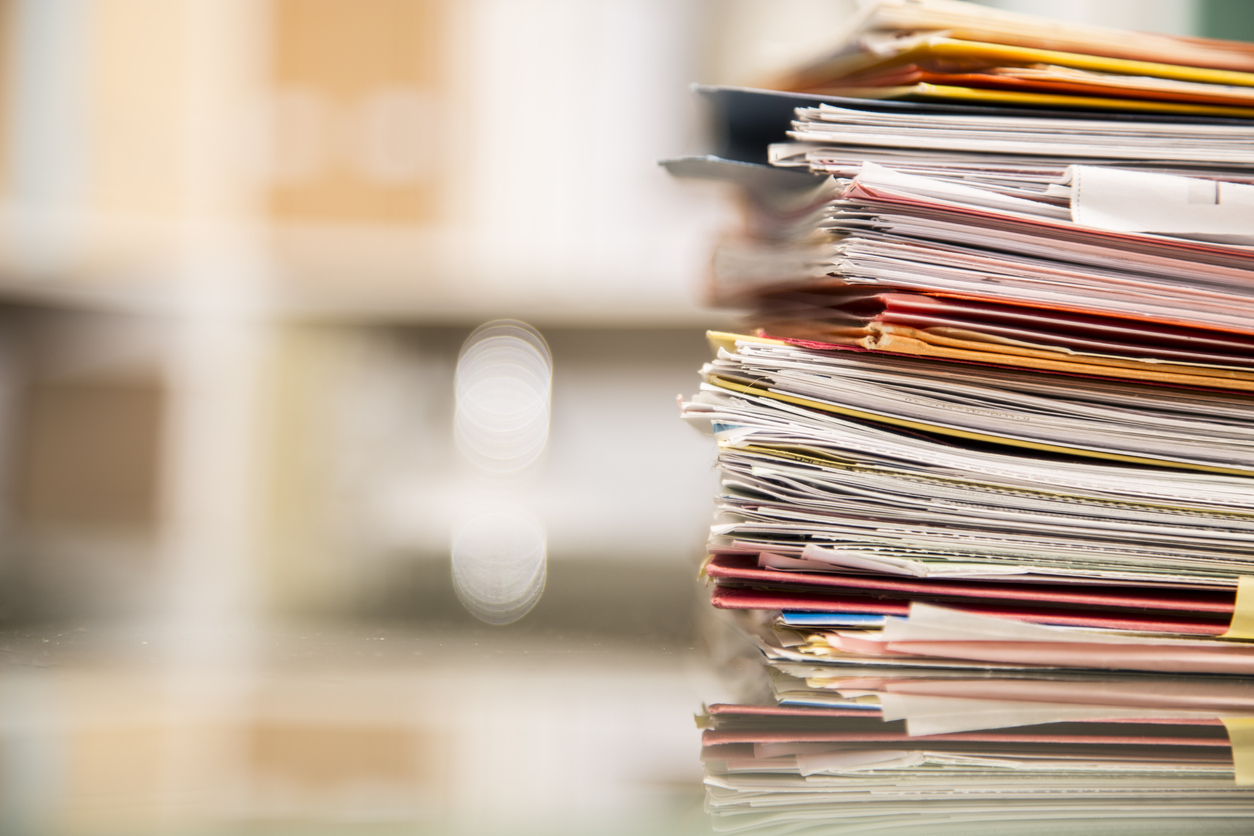
Lamberton says documents or paperwork can "deteriorate quickly in poor conditions such as those found in a shed."
"It's best to not store things like bankers boxes full of old receipts, tax forms, or other important items written on paper in them," she tells Best Life. Artwork and photographs should also be stored in a controlled, indoor environment to avoid damage.





















